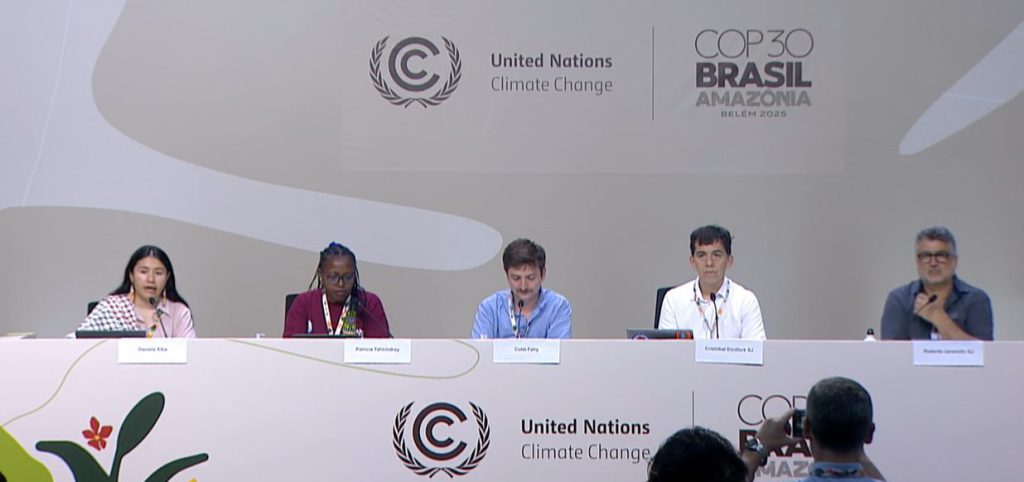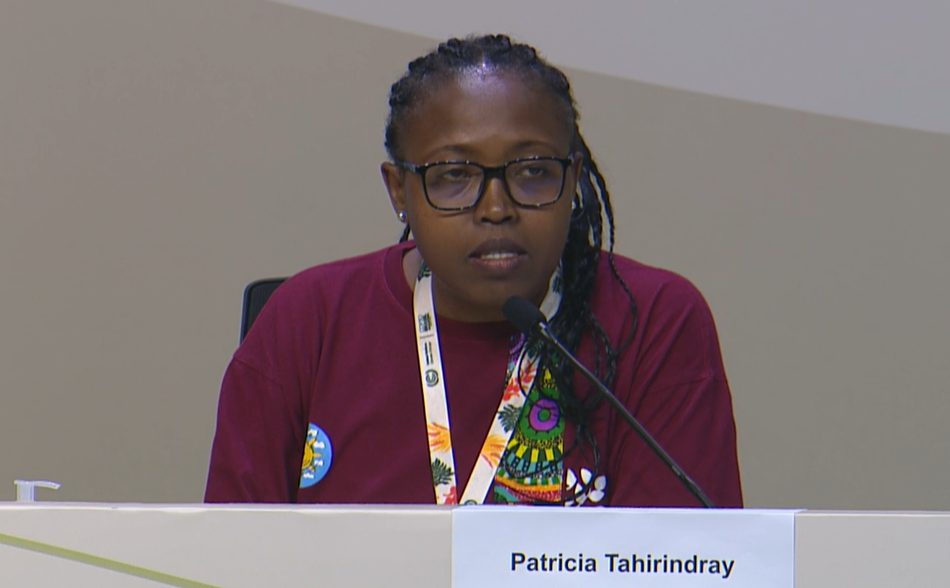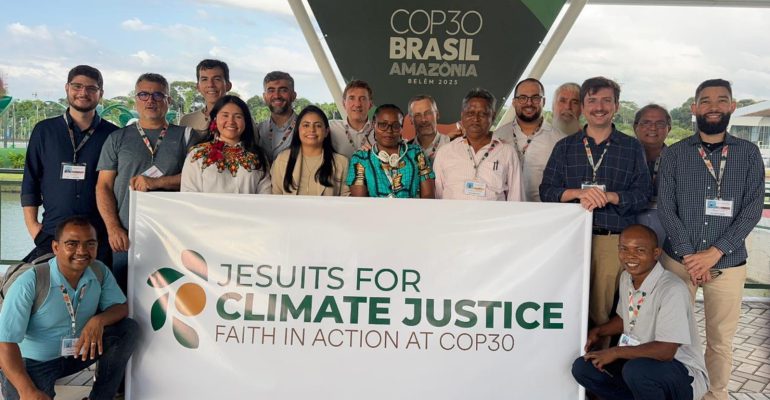BELEM, BRAZIL — On November 20, during COP30, the Society of Jesus submitted a strong appeal to conference president Ambassador André Corrêa do Lago, outlining three urgent priorities for fair and effective climate finance. The gesture marked a renewed push by the Jesuits for deep, structural reforms in the global response to the climate crisis.
In their letter, the Jesuits laid out three core demands. They called for a dedicated mechanism under the Just Transition Work Programme to ensure predictable, grant-based financing for developing countries—support that does not worsen existing debt. They further urged the strengthening and full transparency of the Loss and Damage Fund so that the world’s most vulnerable nations can access it easily. Their final call focused on transforming the global financial system, including mandatory cancellation of climate-related debt to free countries from burdens that hinder climate action.
Read the Full Statement Here: https://www.ecojesuit.com/jcjccop30/
The Jesuits for Climate Justice campaign group,—of which Jesuit Missions and the Centre Arrupe Madagascar are members—maintained an active presence throughout the COP30 negotiations, which concluded on Saturday, 22 November.

On November 21, a day after submitting the letter, the Jesuits for Climate Justice campaign convened a press conference in the Blue Zone. There, the delegation expanded on their proposals and reflected on the intersection of faith, justice, and ecological responsibility in responding to an accelerating climate crisis.
Speaking at a Jesuits for Climate Justice press conference at COP30 in Belém, Brazil, Patricia Tahirindray, Programme Coordinator at the Centre Arrupe Madagascar, said many countries in the Global South are “suffocating” under the weight of crippling debt repayments and limited access to environmental finance packages. she said the only fair way to resolve this issue is to address the imbalance.
“Behind every budget line, there are lives,” she said. “Vulnerable countries are not asking for charity, but for justice, equality, and common but differentiated responsibilities, including historical responsibility.
“Those who benefitted most from past emissions have a responsibility to support those who face their consequences. We don’t want to disappear; we want to live.
“Living requires refinancing, not promises. Financing that arrives on time, reaches the right people, comes from grants and frees countries from suffocating debt.”

Patricia acknowledged some steps have been taken, such as inviting conversations on Loss and Damage repayments and making climate adaptability a “priority”.
“Please, let’s stop saying it is complicated.”
– Patricia Tahirindray
But she noted the resources proposed for poorer countries to deal with these issues remain painfully inadequate.
She added that “promises without action” is meaningless, outlining the real impact of climate change on people in Madagascar and other climate vulnerable countries, and how the situation will only get worse if they do not receive proper support.
“Please, let’s stop saying it’s complicated,” she said. “What is complicated is families displaced by floods. What is complicated is farmers losing three seasons in a row. What is complicated is schools destroyed, roads cut off, lives shattered. The rest is political choice.”
Read Also: https://ajan.africa/cop30-highlights-ca-mdg-advancing-climate-justice-and-integral-ecology/
Compiled by, Mr.Dennis Owuoche,
AJAN Communications Officer.


Comments are closed.